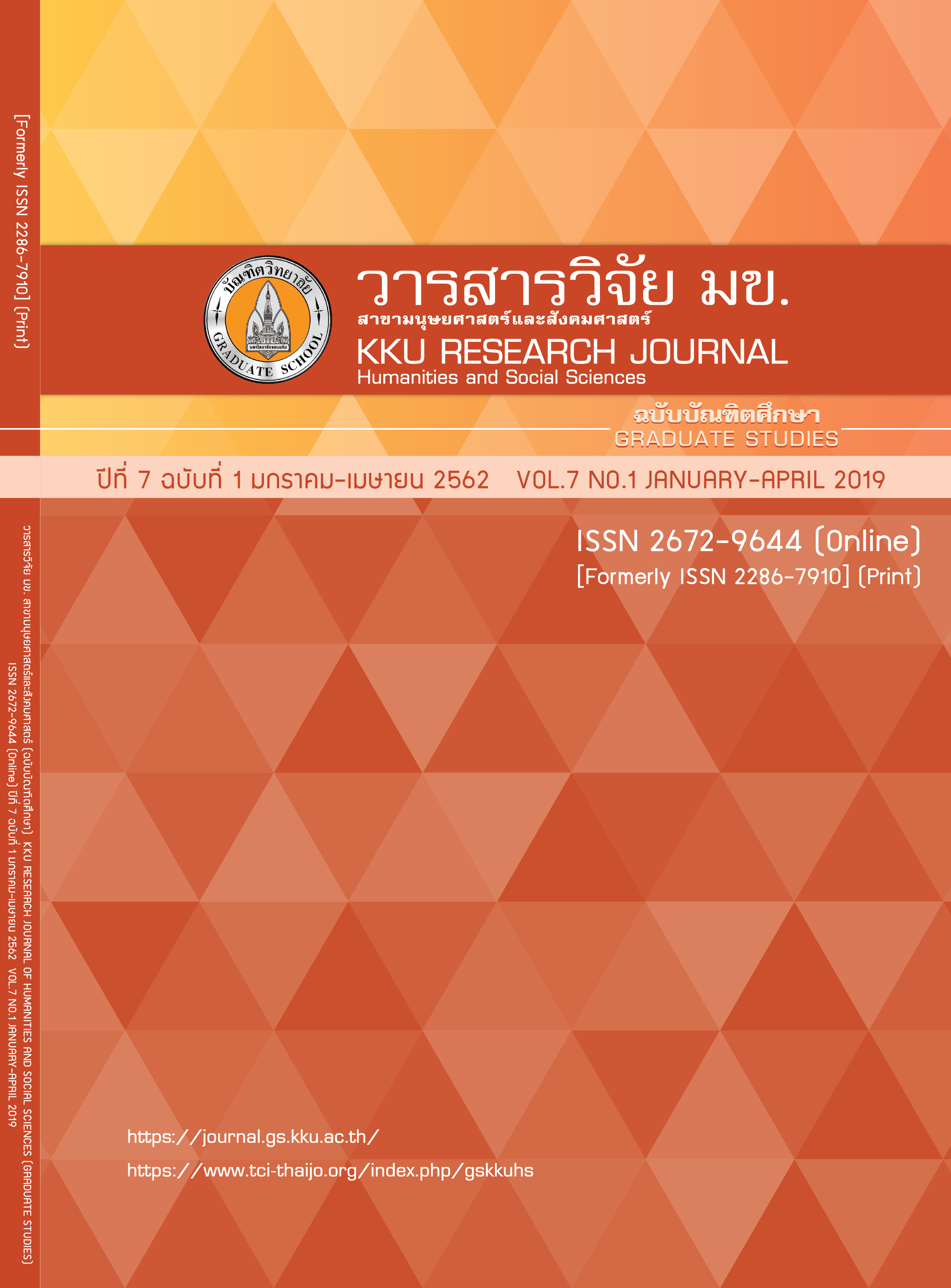The Development Model Studied Through Thai Northeastern Literature
Keywords:
Model student development, Honesty, Thai northeastern literatureAbstract
The objectives of this descriptive research were to study: 1) Study problems and needs of Problem solving format honesty. 2) To create the development of development model studied through literary honesty 3) Evaluation of use development model studied through literary honesty. Use research mixed methods between the quantitative research and qualitative research. Population and the target group used in the study phase 1 : Study problems and needs of Problem solving format honesty. Include of 375 Mathayom 1 students. Choose a multi-step sample, 28 teachers of social studies, religion and culture and 2 villagers. A total of 30 people. Use a selective approach. Phase 1: To create of development model studied through literary honesty by Thai Northeastern Literature. Five experts evaluated the model. Phase 2: Evaluation of the use of model. Phase 3: Include of 30 Mathayom 1 students of Banhinladsantoo School. Under the Office of Ubon Ratchathani Primary Education Area 3. Research Tools. Is a survey. Group recordings,assessment, Satisfaction and Test Model, Data were analyzed by means of software program for percentage, standard deviation. Presentation of table and descriptive research results. The research result found: 1. Problems of Honesty of Mathayom 1 students. of Banhinladsantoo School. Under the Office of Ubon Ratchathani Primary Education Area 3. It was found that 4 problems were at high level. When considering each aspect, there is a problem of honesty. 1st Place of Treatment for others, No. 2 functional responsibilities, and third, the integrity of the self. และ The need to create a model for developing honesty learners, Want to use learning activities through content by Thai Northeastern Literature. Some content is consistent with the teachings of Buddhism involved. By applying the model to the age of the student. 2. Results of the development model studied through literary honesty. Found that creating the development model studied through literary honesty. There are 20 topics in Buddhism. The form of the learning activity consists of 8 elements. And the overall quality is very high. 3. Evaluation results using the form of learning activities. By comparison through literary honesty by Thai Northeastern Literature. Before learning with the class. Found that The difference was statistically significant. 05. And assess the student's satisfaction. Influence the model of learning activities. The overall honesty was at a high level.
References
Khon Kaen University. 10 (4), 76-83, 2015. Thai.
2. Ministry of Education. Guidelines for student development activities: According to Core Curriculum,
Basic Education 2008. Bangkok: Agricultural Cooperative Federation, 2010.
3. Ban Hin Lad Santoo School. Self Assessment Report 2015. Ubon Ratchathani : Ban Hin Lad
Santoo School, 2015.
4. Anutip Tanthong Paya. Online from http://oknation.nationtv.tv/blog/Anutip/2014/04/16/entry-1
5. Silapon Buesy. The importance and role of local history today. Journal of Community Research.
15 (87), 4-6, 2009. Thai.
6. Academic and Educational Standards. Indicators and subjects of social studies, religion and
culture according to the core curriculum BE 2551. Bangkok: Agricultural Cooperative Federation of
Thailand, 2009.
7. Joyce and Weil. 1996. Model of teaching. 5thed Boston: Allyn and Bacon.
8. Phra Brahmagunabhorn (P. A. Payutto) Buddhist Teaching Method. Bangkok: Bodhidharma
Foundation, 2001. Thai.
9. Sukthai Surakitboovon. Honesty, ethics, desirable of Thai youth, how to cultivate and
Strengthen. Sakon Nakhon: Rajabhat University, 2002. Thai.
10. Surang Khowtrakul. Educational Psychology. 5th ed. Bangkok: Chulalongkorn University,
2002. Thai.
11. Prapatson Pree-iam. To remove the lessons of the Doctor of Philosophy program. Innovation
for Local development. Mahasarakham Rajabhat University, 2013. Thai.




